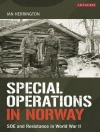Missionary families were an integral component of the missionary enterprise, both as active agents on the global religious stage and as a force within the enterprise that shaped understandings and theories of mission itself. Taking the family as a legitimate unit of historical analysis in its own right for the first time, Missionary families traces changing familial policies and lived realities throughout the nineteenth century and powerfully argues for the importance of an historical understanding of the missionary enterprise informed by the complex interplay between the intimate, the personal and the professional. By looking at marriage, parenting and childhood; professionalism, vocation and domesticity; race, gender and generation, this first in-depth study of missionary families reveals their profound importance to the missionary enterprise, and concludes that mission history can no longer be written without attention to the personal, emotional and intimate aspects of missionary lives.
Cuprins
General Editor’s introduction
1. Introduction
2. The rise and fall of the missionary wife
3. Missionary marriage
4. The missionary family
5. Missionary mothers and fathers
6. Missionary children
7. Epilogue: Second-generation missionaries
8. Conclusion
Appendix
Bibliography
Index
Despre autor
Emily J. Manktelow is a Lecturer in British Imperial History at the University of Kent












